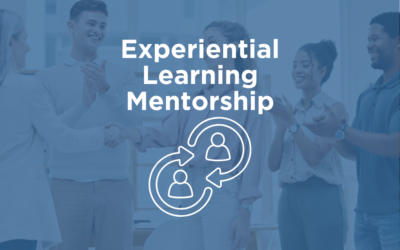
In February, Ed Riefenstahl, Director of Experiential Learning at TCU’s Neeley School of Business, presented a behind the scenes look at their MBA Consultancy: Neeley & Associates. Below is the Q & A from the session.
Miss the webinar? Watch the recording here.
Q: How many projects does Neeley & Associates deliver each year?
A: 12
Q: How do you acquire the projects?
A: I reach out to my contacts, and leads from others at TCU. When we started we did have a small budget for marketing materials. There is no budget specifically for marketing, but I use monies from client fees for gifts of appreciation and meals with advisory board members and existing and past clients.
Q: Have you ever had an adhoc team not complete their deliverable before graduation and had to transition to a new team? If not, how do you avoid the situation?
A: Yes. I did not avoid it. Rather, expectations were set with the client that if they wanted to go “deeper” into the recommendations of the initial team, that I would likely be presenting a new team after spring graduation of the initial team members.
Q: Do Neeley & Associates projects require NDAs? If yes, how are your teams able to present to their panels while adhering to NDA guidelines?
A: Yes, and all panelists sign NDAs regardless if client asks for them or not. If client is sensitive, I ask the client if they want me to have their panelists sign “their” NDA, rather than the one I provide panelists.
Q: When you say sponsors, do you mean internal champion at repeat client company, or do you mean financial, branded sponsors to augment program income?
A: We define sponsors as internal champions at the client company.
Q: Is the fee identical for formal and ad hoc projects?
A: No. All Ad Hoc projects are individually scoped and priced based on what budget client plans to use.
Q: What kind of content/resources do you provide your students in support of their projects?
A: For each “formal,” 350-hour, spring semester project for 1st-year, full-time MBAs, I pay a faculty SME for approximately 6 to 10 hours of behind scenes assistance, have an advisory board member from a consulting organization help with scoping and doing 2 independent quality assurance reviews, assign a 2nd year MBA Principals to serve as a coach/mentor to his/her team, have each team go through 3 separate status report meetings with me, have each team run through 2 separate panels of business execs 3 weeks before final presentation and report, and have each team sit with staff in our Center for Professional Communication.
Q: What challenges or opportunities come with managing 2 different project formats each year (ad hoc vs formal)?
A: Ad Hoc are individual, and therefore custom. Requires more of my individual time. With Ad Hoc, I often am the QA person.
Q: Where do you draw the line with leaving students to show leadership and manage their clients vs intervening to make sure students get what they need from those clients?
A: It is a balance, but we have an escalation process where the “formal” team first takes an issue to their 2nd year MBA Principal. If the Principal needs assistance, they elevate to me. There have been times when I have had to intervene to make the client aware that they will not get what is signed-off in the Project Charter because they are not getting access or data as delineated in the Project Charter they signed.
Q: Is there anything you’ve learned from your program that you think would be a good lesson for an undergraduate program?
A: I would not do this with an undergraduate program because I would be concerned about the time for me to be involved. Our MBAs have an average of 5 years of work experience, so are a bit more mature and experienced.
Q: Have you had any issues come from letting students select their clients?
A: The students only indicate their interest and ranking. The 2nd Year MBA Principals and I put together the “best-balanced” team. If any student puts up a fuss, they are de-selected.
For more about Neeley & Associates, visit their website. If you are an employer interested in engaging their services, send them a project proposal.



